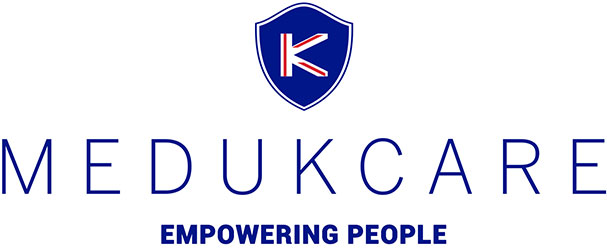Please be advised that these are GENERAL suggestions. Be sure to contact your local GP or the Falls Prevention Team in your area if you have any concerns. The Falls Prevention Team can provide: a thorough holistic falls assessment, specific exercise classes to improve strength and balance (OTAGO), equipment, advice on footwear vision and Telecare. They can also provide onward referrals to specialist departments.
Falls prevention: Information for patients, carers and relatives
Falls are not inevitable and many can be prevented. This ‘post’ gives you tips on how to prevent falls and details of organizations that may be helpful to you.
1. Improve strength and balance
Exercise to strengthen your body and leg muscles and improve your coordination are known as ‘strength and balance training’. This is one of the most effective ways to reduce the risk of falling and can be done at home as well as in group classes.
Other activities such as Tai Chi and chair-based exercise classes can build or maintain strength and balance. Contact your loca Leisure Center or day centers for details of classes, activities and events.
2. Have an eye test
Good eyesight is vital for balance and for moving around safely. Eye tests are free if you are aged 60 or over and you might be eligible for vouchers towards lenses etc. Some opticians will even visit you at home if you are unable to get to them.
You should have your eyes tested at least every two years. Take extra care if you need to use bifocal or varifocal lenses as these can affect how you perceive objects, distances and heights.
3. Manage your medicines
Let your GP know if you ever feel faint or unsteady after taking medication. It is important that you do not stop taking medication. It is important that you do not stop taking any medication unless advised to by your GP. If you take for or more different kinds of medicines per day, ask your GP or pharmacist to check your prescription every six months.
4. Eat well and drink lots of fluids
Eat regularly, choosing a broad range of foods every day for good health, and drink at least eight cups of fluid each day.
5. Make your home safe
Most falls occur at home. Keep an eye out for things that could cause you to slip or trip, e.g. rugs, wires, worn out carpet or things left on the floor. Either remove them or make them safe. Take extra care on stairs and only use aids for walking and balancing that have been specifically tailored to your needs.
6. Look after your feet
Painful feet can trip you up. Have regular foot check-ups to keep your feet healthy. Choose shoes that fit well and are suitable for your activities. Generally, high-sided, thin-soled footwear with a good grip will give you extra stability. Replace slippers that are to loose, worn out or that have no backs around your heels.
7. Deal with anxiety and fear
Fear of falling can stop people doing their usual activities. This can lead to reduced fitness and increased isolation. Following the advice in this ‘post’ is a good start to regaining lost confidence.
It is recommended to talk to your GP if you have any questions or concerns.
8. Look after your bones
Preventing and treating osteoporosis (brittle bones) helps to prevent fractures. Contact your GP or the National Osteoporosis Society if you have any concerns about bone health / brittle bones.
The National Osteoporosis Society is staffed by nurses who provide information on osteoporosis and details of local support groups.
If you are concerned about falling, please contact your GP in the first instance.




